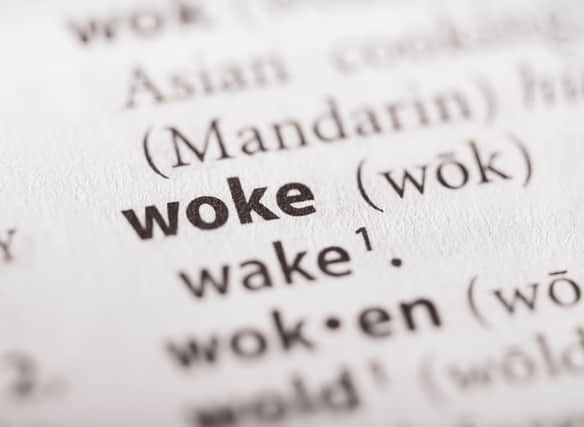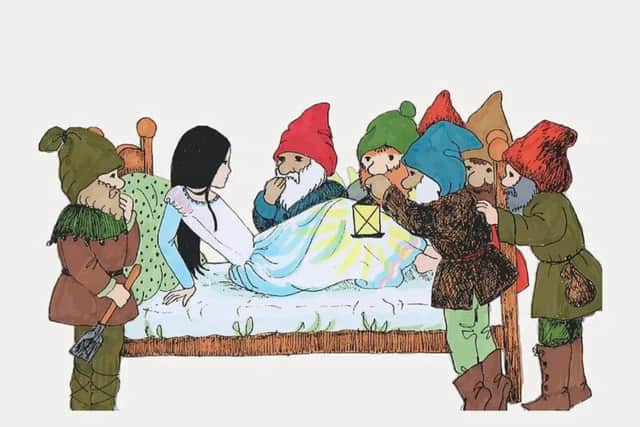What woke means? Origins and how its meaning has changed in recent years


Being conscious and aware, embracing leftwing activism or simply serving as the past participle of wake? More often than not, what “woke” means depends on who’s defining it.
While we can refer to the dictionary, such officially prescribed definitions may deprive readers of a nuanced understanding as the term is only given a reductive explanation.
Advertisement
Hide AdAdvertisement
Hide AdAs the word is at the centre of fierce political discourse, comprehending what it represents is vital not only to follow the national conversation but also minimise conflict as all sorts of people have their reasons to be for or against “woke”, according to their interpretation of it.
As with many cultural phenomena encountered in Britain it is widely seen as an import from the United States where “wokeism” is a leading topic. Florida Governor Ron DeSantis recently said: “The woke mind virus represents a war on merit. It represents a war on achievement.”
The White House hopeful, who in an interview with The Telegraph said the UK was like his ‘second home’, has been a staunch opponent of “woke” which has led to frequent mentions of it during his 2023 campaign trail. In response, fellow opponents and defenders of “woke” have weighed in heavily, but a third all too easily forgotten group i.e., those who are not in the know or centre aisle of politics, have been left questioning what this word means and its significance in culture.
In the interest of fostering clarity in conversation, here is an overview of the term “woke” including its origins, what it means to different people, how it has evolved over the years and why some now distance themselves from it.


A Brief History of Woke
The Economist writes that the term “was first defined in print by William Melvin Kelley, a black novelist, in an article published in the New York Times in 1962.” The essay was centred on “phrases and words you might hear today in Harlem” (a New York City neighbourhood where many black Americans live) with the title “If you’re woke, you dig it.”
A decade later, a character of Barry Beckham’s “Garvey Lives!” play said he would “stay woke” through the work of Marcus Garvey; a leader of the Pan-Africanism movement. The line reads: “I been sleeping all my life. And now that Mr Garvey done woke me up, I’m gon stay woke. And I’m gon’ help him wake up other black folk”.
This ties into Merriam-Webster’s definition of ‘woke’ as “a slang term that is easing into the mainstream from some varieties of a dialect called African American Vernacular English (sometimes called AAVE). In AAVE, awake is often rendered as woke, as in, “I was sleeping, but now I’m woke.””
The term exploded into the public consciousness in 2014 following the fatal police shooting of Michael Brown in Ferguson, Missouri. Thereafter, the phrase “stay woke” rapidly grew in popularity among activists who used it to warn others to keep watch for police brutality or other unjust tactics.
Advertisement
Hide AdAdvertisement
Hide AdBy 2017, Merriam-Webster officially added the word to their dictionary where it was defined as “aware of and actively attentive to important facts and issues (especially issues of racial and social justice).” Now, almost ten years following Brown’s death, Vox explains that the term “has evolved into a single-word summation of leftist political ideology, centred on social justice politics and critical race theory.”
In short, it is bipartisan: often regarded as morally virtuous and politically progressive by those who espouse it while emerging as a pejorative for those who decry “woke” as a hollow brand of social justice tainted by misguided or performative activism.
As reported by the Daily Mail, for example, this year many top firms stood accused of what some dubbed “woke hypocrisy” as they uploaded rainbow logos to their social media for pride month only on US accounts and not on their middle eastern ones. Criticised as “profit before pride”, it touches on why modern social justice activism - regarded as “woke” by extension - can ring hollow for some.
What does woke mean?
In 2017, the Oxford English Dictionary added “woke” as an adjective. It was defined as “originally: well-informed, up-to-date. Now chiefly: alert to racial or social discrimination and injustice”. However, the term has evolved in the cultural space to be less associated with race and more ideology.
In recent years, the word became intertwined with cancel culture as the pair saw increased use together e.g., people were cancelled as critics accused them of saying something insensitive or - in essence - not woke. As Insider reports: “Cancel culture encourages shame over accountability, and the mental health consequences can be dangerous.
“Sometimes it works. But in many cases, the effort devolves into unproductive shaming or mob-rule entertainment.”
This led many to see “woke” as a tool used to enforce cancel culture. As previously mentioned, what “woke” technically means and what it means culturally to people very much depends on the individual and their own subset of politics.
Vox summarises: “On the left, to be “woke” means to identify as a staunch social justice advocate who’s abreast of contemporary political concerns — or to be perceived that way, whether or not you ever claimed to be “woke” yourself.
Advertisement
Hide AdAdvertisement
Hide Ad“On the right, “woke” — like its cousin “cancelled” — bespeaks “political correctness” gone awry, and the term itself is usually used sarcastically.”
Why has “woke” lost support?
As Psychology Today wrote: “In humanity’s chequered past, most people have not been treated fairly, equally, or even humanly.” This is why “woke” as a descriptor for social awareness and a driving force behind progressive activism has been widely endorsed by many over the years.
Unfortunately, there are those in society who do not hold those values and so they may oppose the term merely because it does not fall within their interests. That said, when some voices criticise “woke” it may not be intended to belittle legitimate strides for justice but rather call out performative moves or rhetoric gone awry.


For example, on their Social Responsibility page, Disney writes that they are “committed to celebrating an inclusive, respectful world.” Yet, reports indicate that their upcoming remake of Snow White features the princess with seven “magical creatures” and not dwarfs.
Dwarfism or Achondroplasia affects 1 in 15,000 people according to MedLine Plus and so, as a minority with less opportunities for on-screen roles, it is expected that Disney as a company with “woke” values should support that.
The Daily Mail reported that the company defended themselves by explaining they wished to “avoid reinforcing stereotypes from the original animated film” but “Dwarf actors Dylan Postl, Jeff Brooks and Katrina Kemp” said “it was the wrong move for Disney to cancel the roles of the seven dwarfs in its Snow White remake”.
Even if done in good faith, a company claiming to act in the best interests of a group only to harm said group in a bid to be sensitive is an example of why some critics decry “wokeism” as it is seen to be used to deflect legitimate criticism behind a front of virtue.
Comments
Want to join the conversation? Please or to comment on this article.